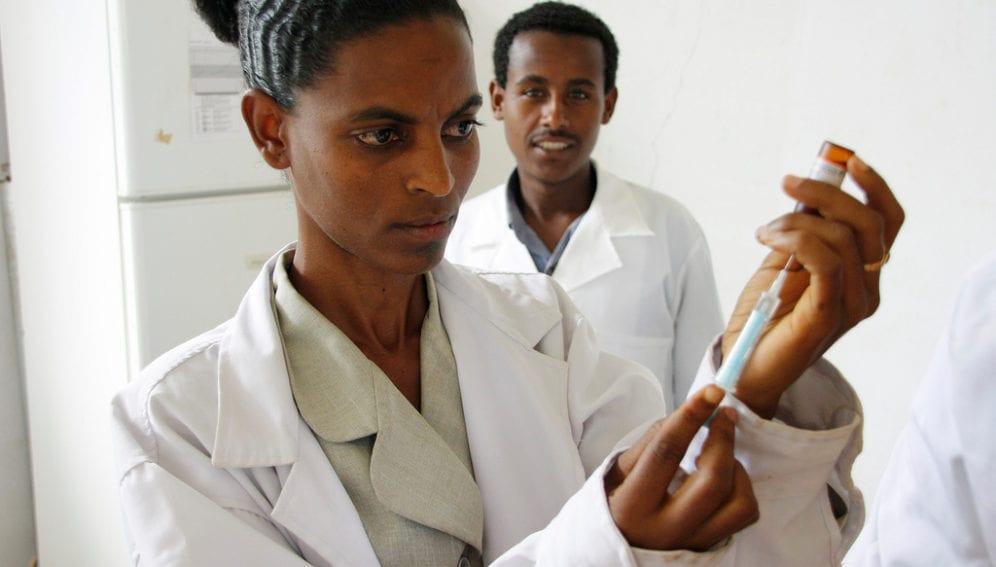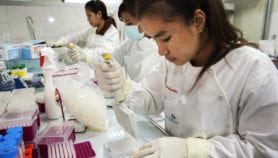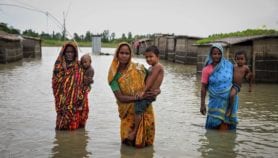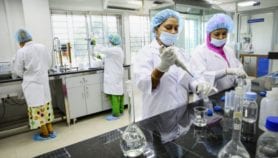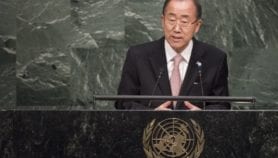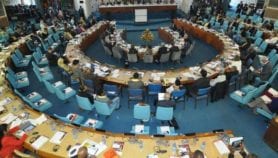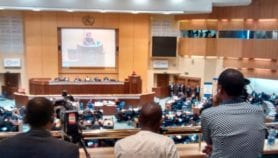By: Anita Makri
Send to a friend
The details you provide on this page will not be used to send unsolicited email, and will not be sold to a 3rd party. See privacy policy.
No one yet knows exactly what the next generation of development goals will look like, but one thing is clear: health no longer enjoys the limelight thrown on it by the millennium development goals (MDGs). Instead, it looks set to be one of several areas of focus. By its content and its very title — ‘Generating knowledge for health; the post 2015 challenge’ — last week’s conference at the UK’s Royal Society of Medicine reflects the soul searching that comes with that shift in the global agenda.
A select group of speakers at the meeting offered their views on how health research relates, or should relate, to the next set of goals. What I heard at the event suggests that this shift can be turned into an advantage. Health may no longer be the centre of attention, but could achieve more for development by quietly building on connections with other areas that feed into the new goals.
Chris Whitty, currently serving as DFID’s chief scientific officer, spoke to this directly, suggesting that the impact on health of non-health MDGs has been possibly greater than that achieved by health-focused goals. And he went further, arguing that the global health research agenda should be set by thinking ahead to 2020–2040 — so that priorities are defined in the context of what the world might look like in the future, not as it is now.
“People shouldn't forget that the world will be very different [40-50 years ahead],” he said. “[This is] a remarkable opportunity for health research, if we're imaginative.”
It’s a view that seems both progressive — by taking the discussion outside the post-2015 ‘box’ — and obvious: many of us could do with being reminded that research takes a long time to come to fruition, and that better health is often influenced by progress in other areas of development.
The world is changing, said Whitty, and development successes breed new challenges. Then he looked into the proverbial crystal ball: the biggest shift to expect over the next decades is probably economic growth in the developing world, particularly in African countries. This means longer life spans, for instance, or interventions becoming financially sustainable. And as cost becomes less of a barrier, health services and delivery become a relatively bigger problem.
Another shift is in population distributions, he added: where the focus in certain regions is now the poor child, in the future it should be the young adult. And climate change needs to be taken seriously as a risk to health, but without exaggeration.
Likely scenarios are, of course, the best we can do when it comes to forecasting. At the coffee break Whitty told me that he puts his vision of the future forward to encourage debate.
He also told me that the new goals agenda neither encourages nor discourages stronger links between health and other areas in development. But it seems clear that the health research community is being challenged to find new ways to influence well-being through better engagement with disciplines not labelled ‘health’. As a case in point, Whitty had asked the audience a rhetorical question: how often does a scientist working on health and housing talk to a builder?
Later in the day other speakers gave their take on proposed development goals with special significance for health. Michael Anderson, of AIDS policy think tank Treatment Action Group, pointed to sustainable production and consumption, governance and the ‘data revolution’ as post-2015 topics that will be important. Francesca Boldrini, of the Bill & Melinda Gates Foundation’s Europe office, also highlighted the data revolution as an area worth supporting in addition to goals such as disaggregated gender data, hunger and R&D for priority health interventions.
Anita Makri is SciDev.Net’s opinion and special features editor.


